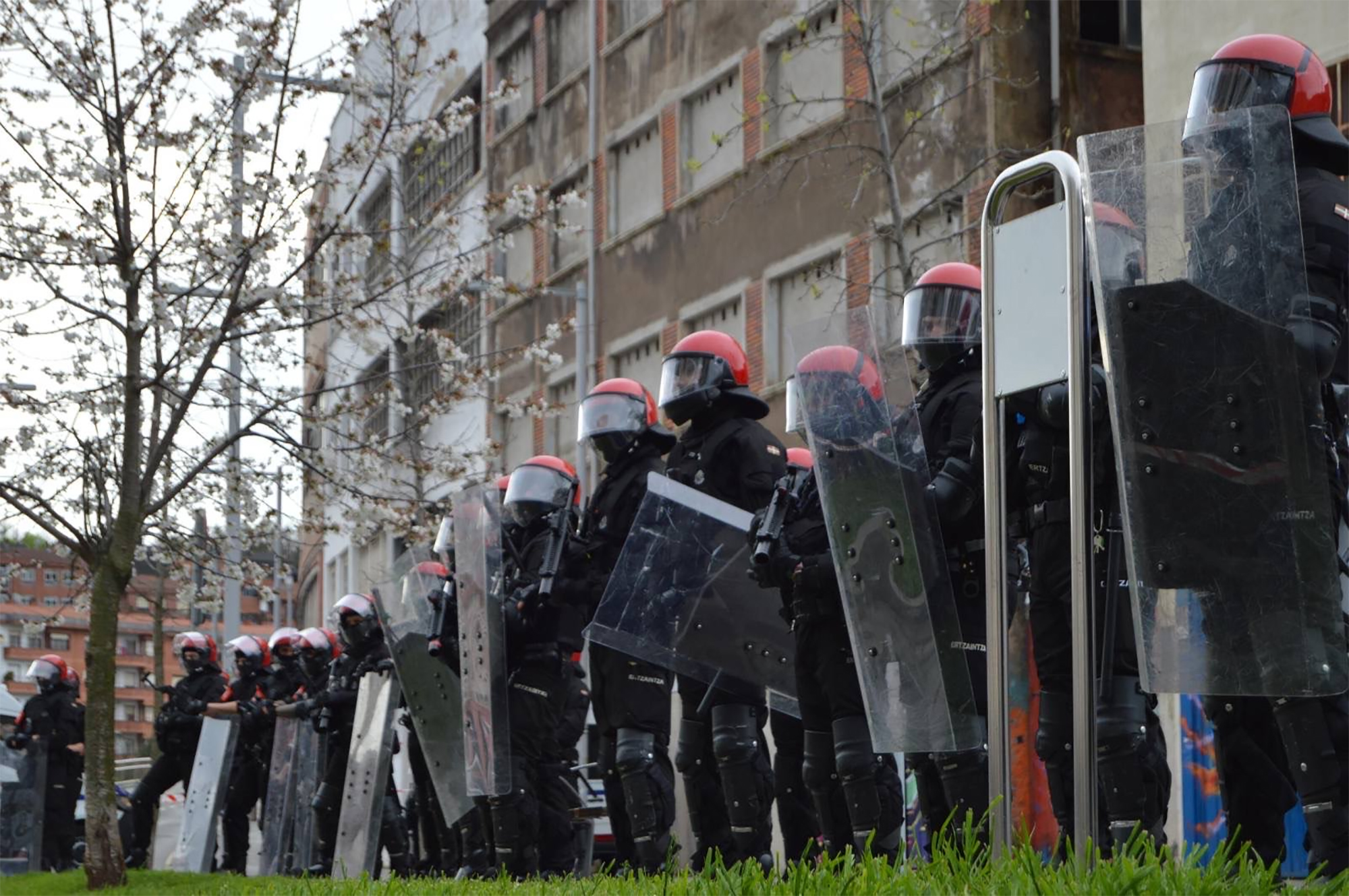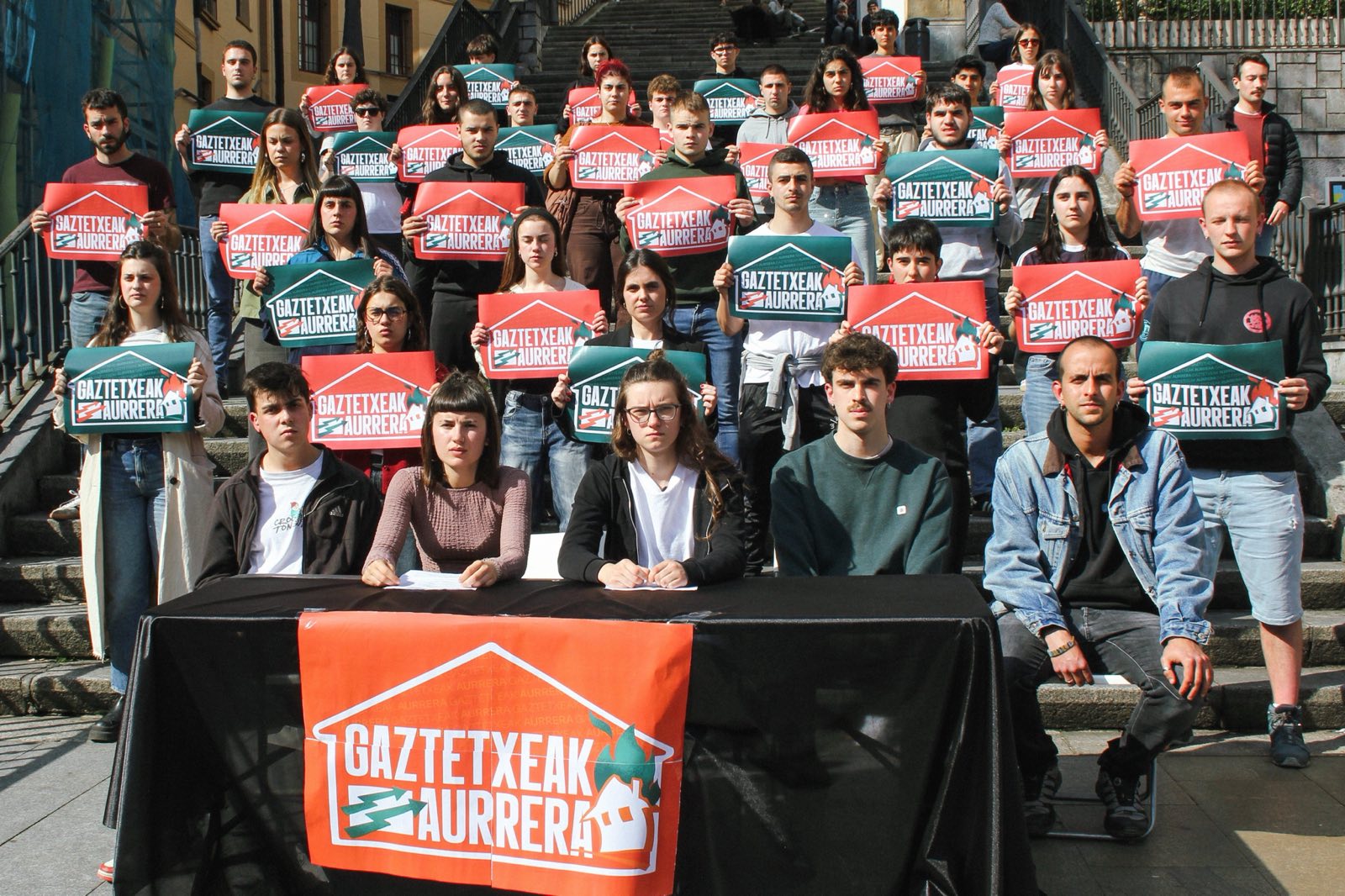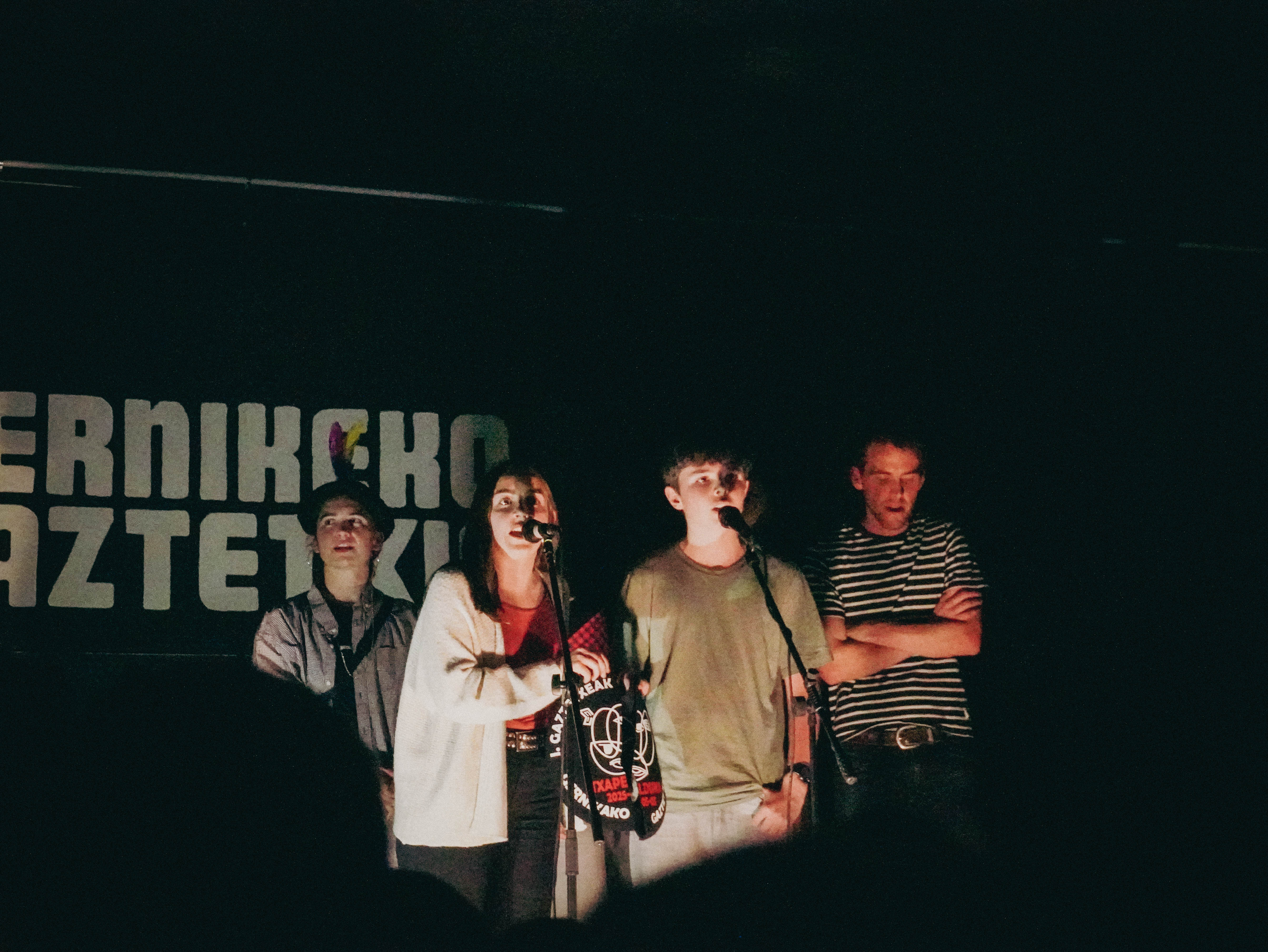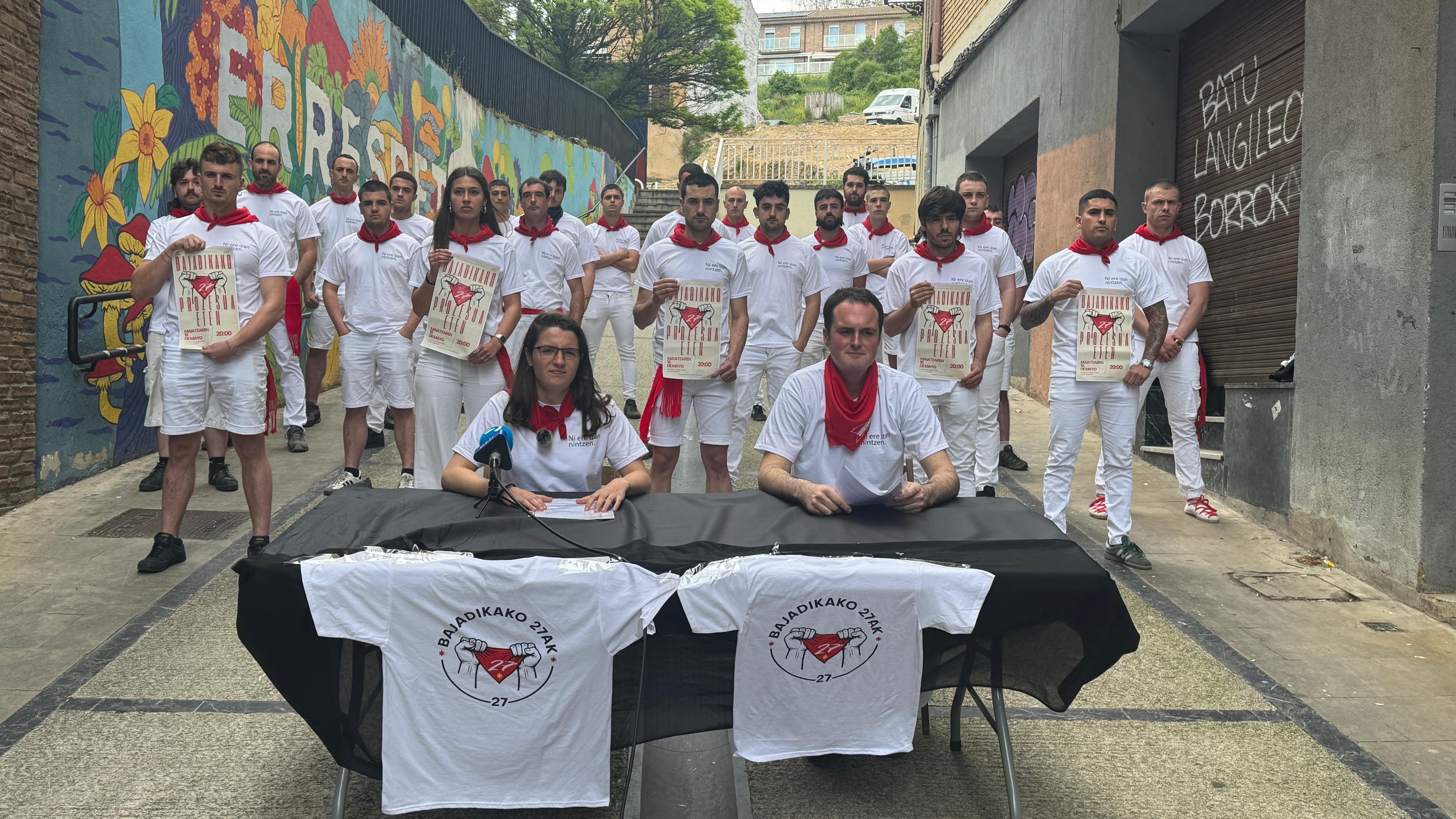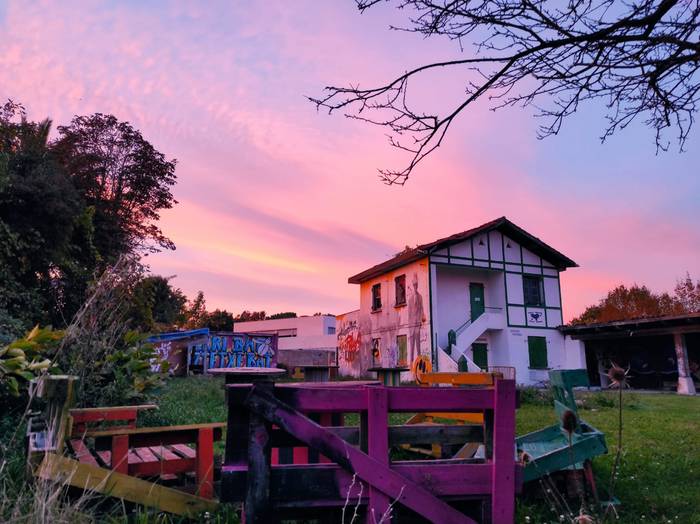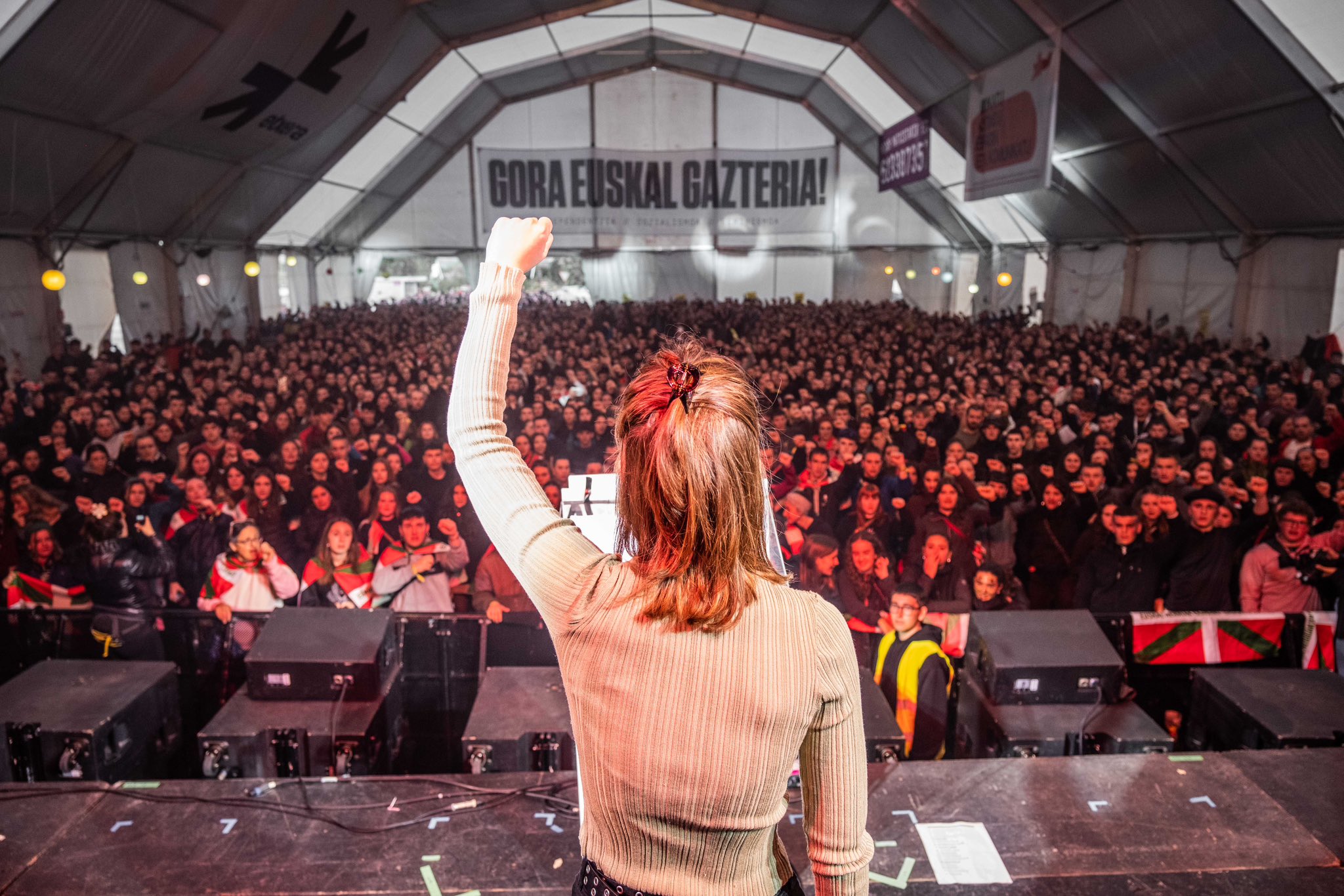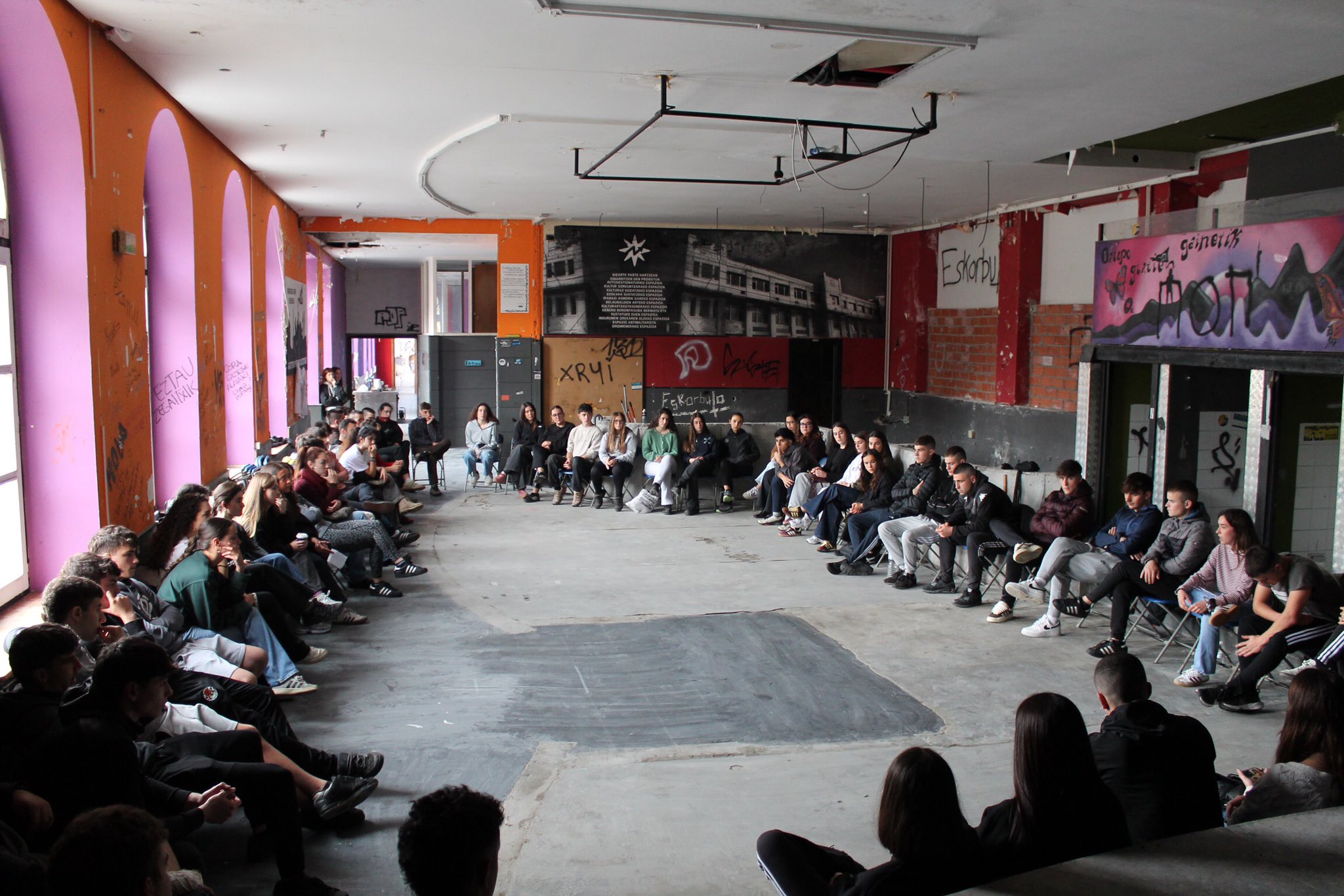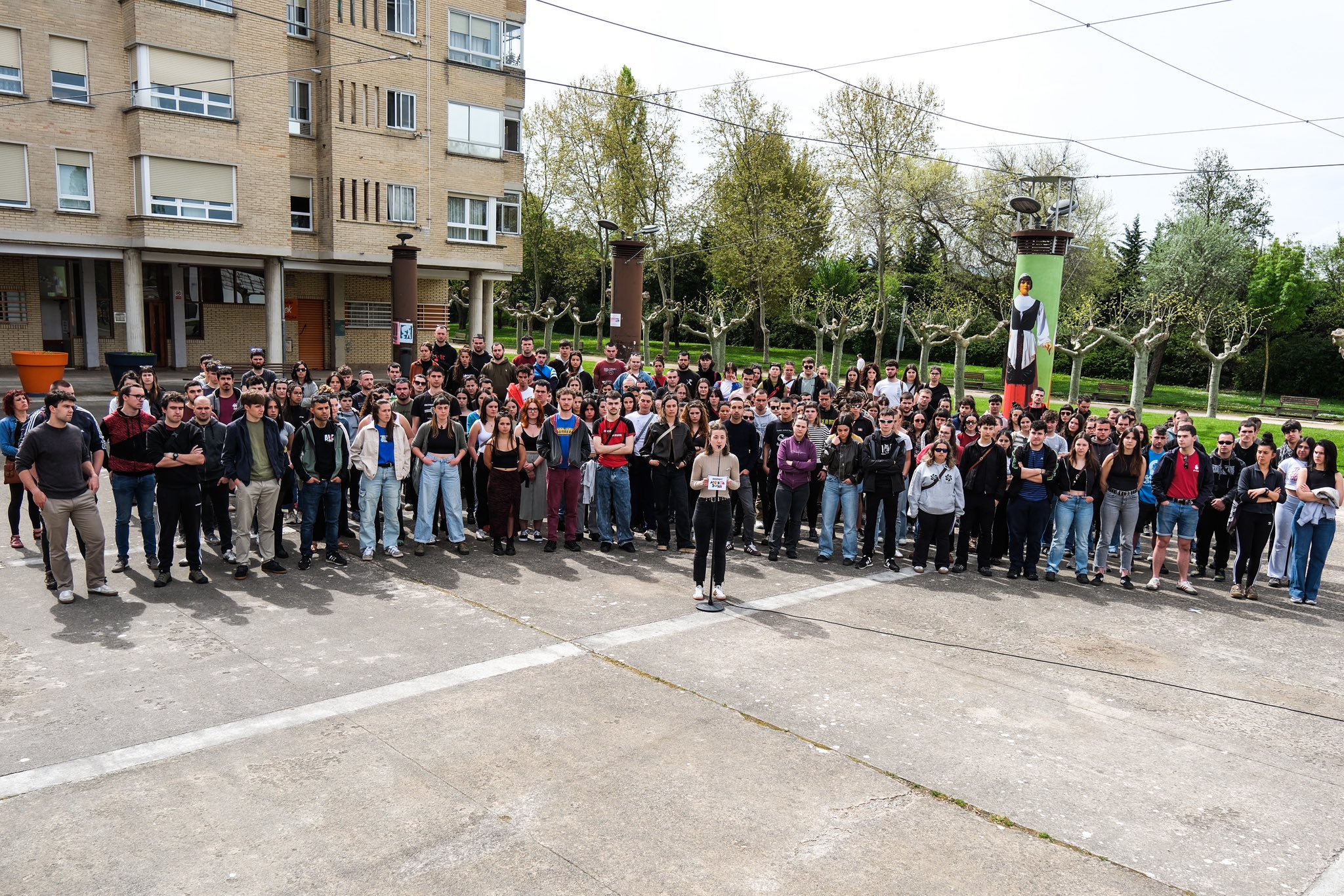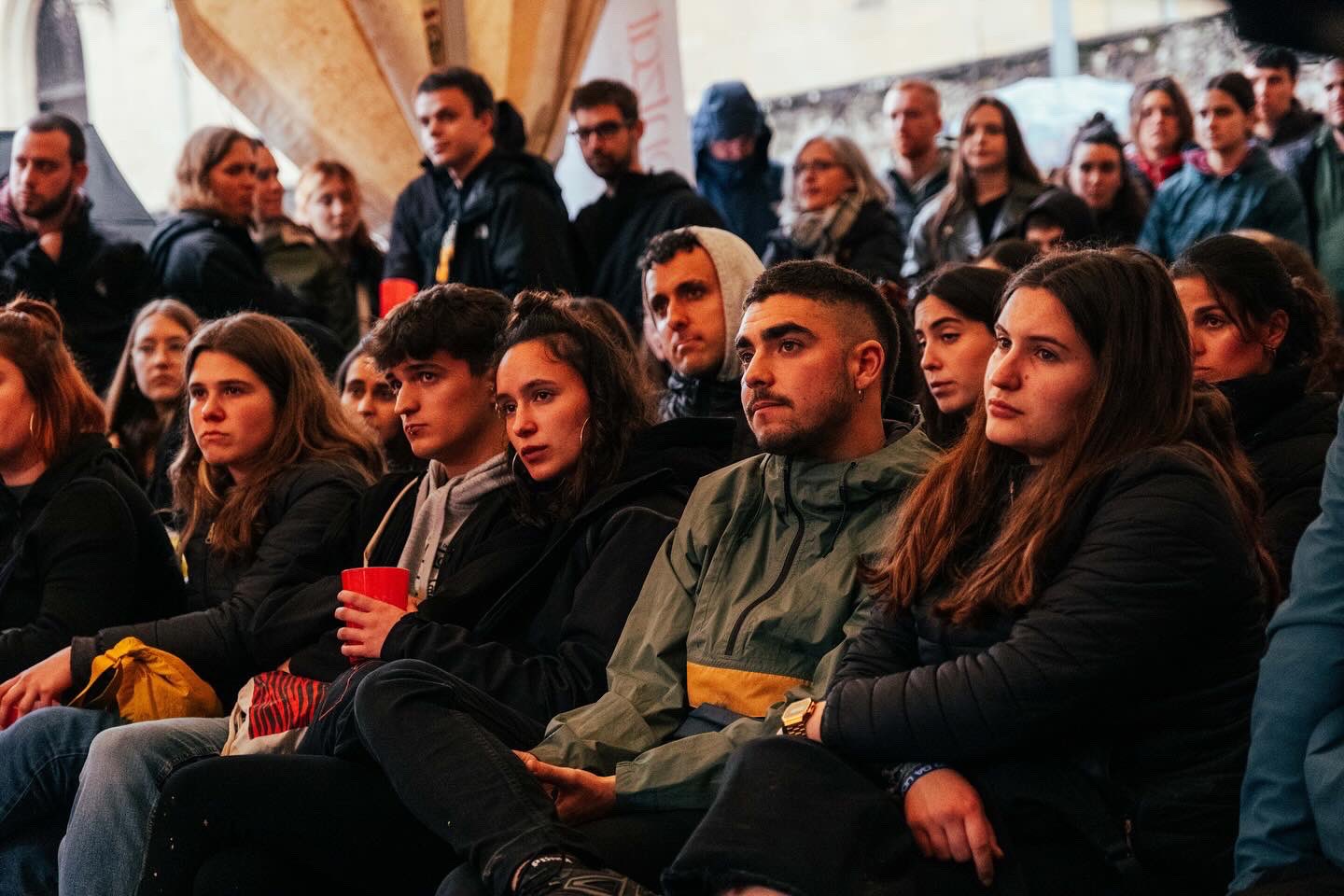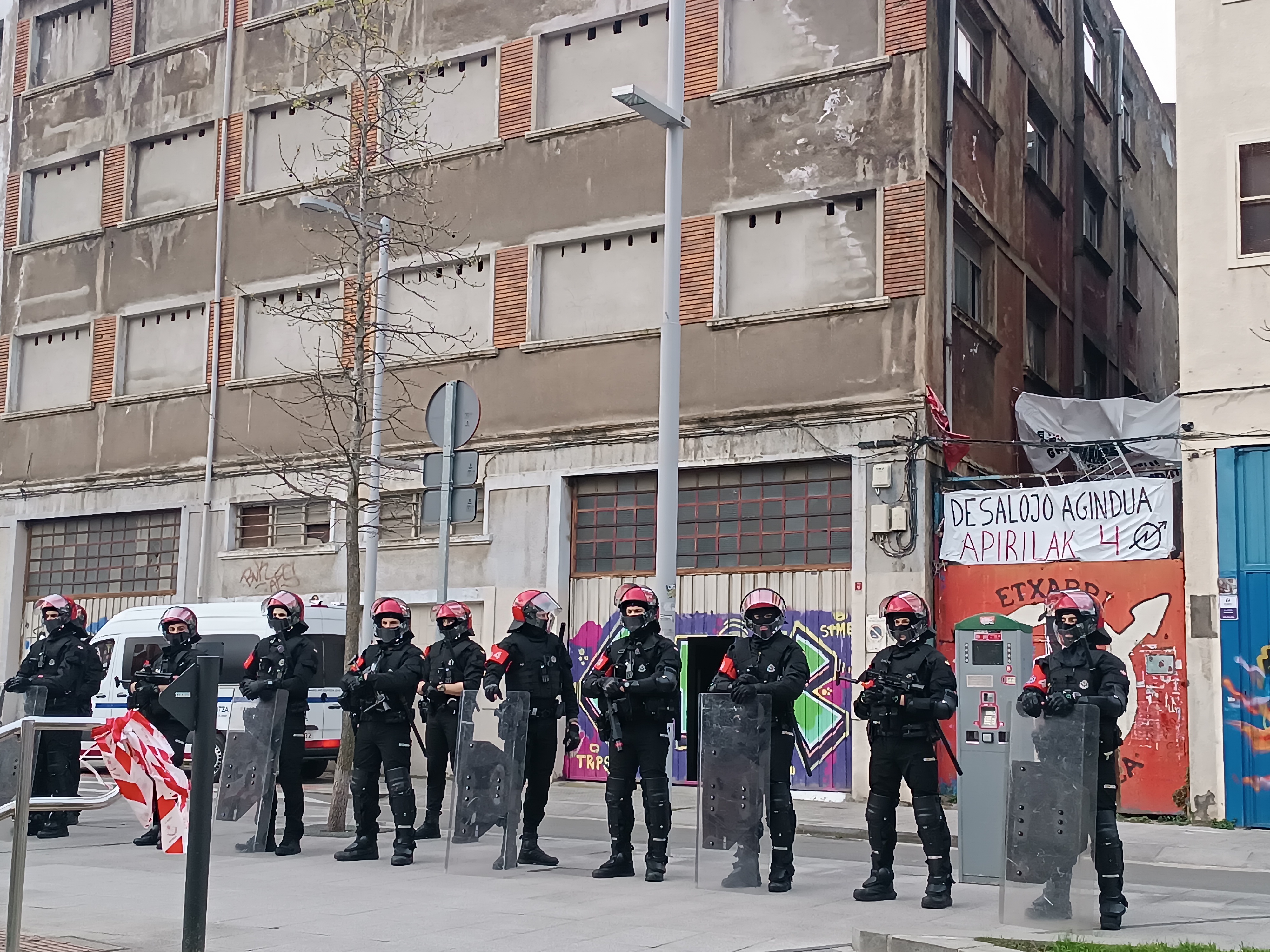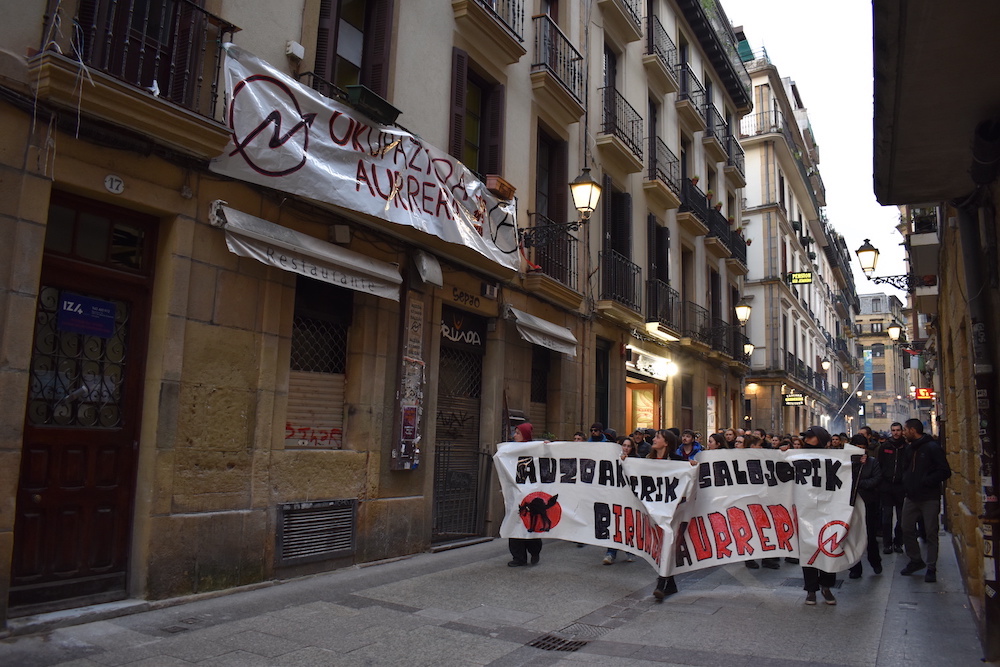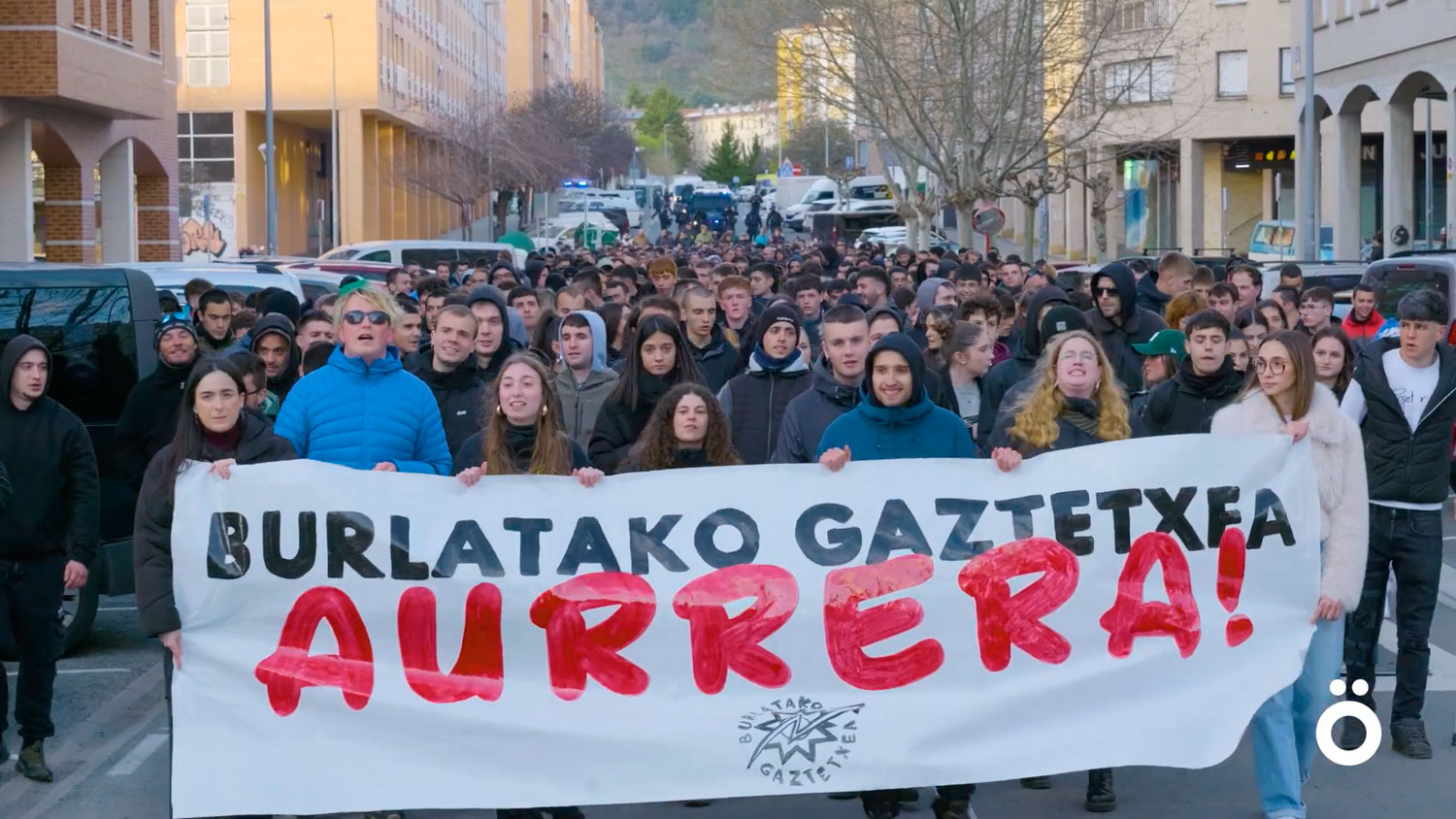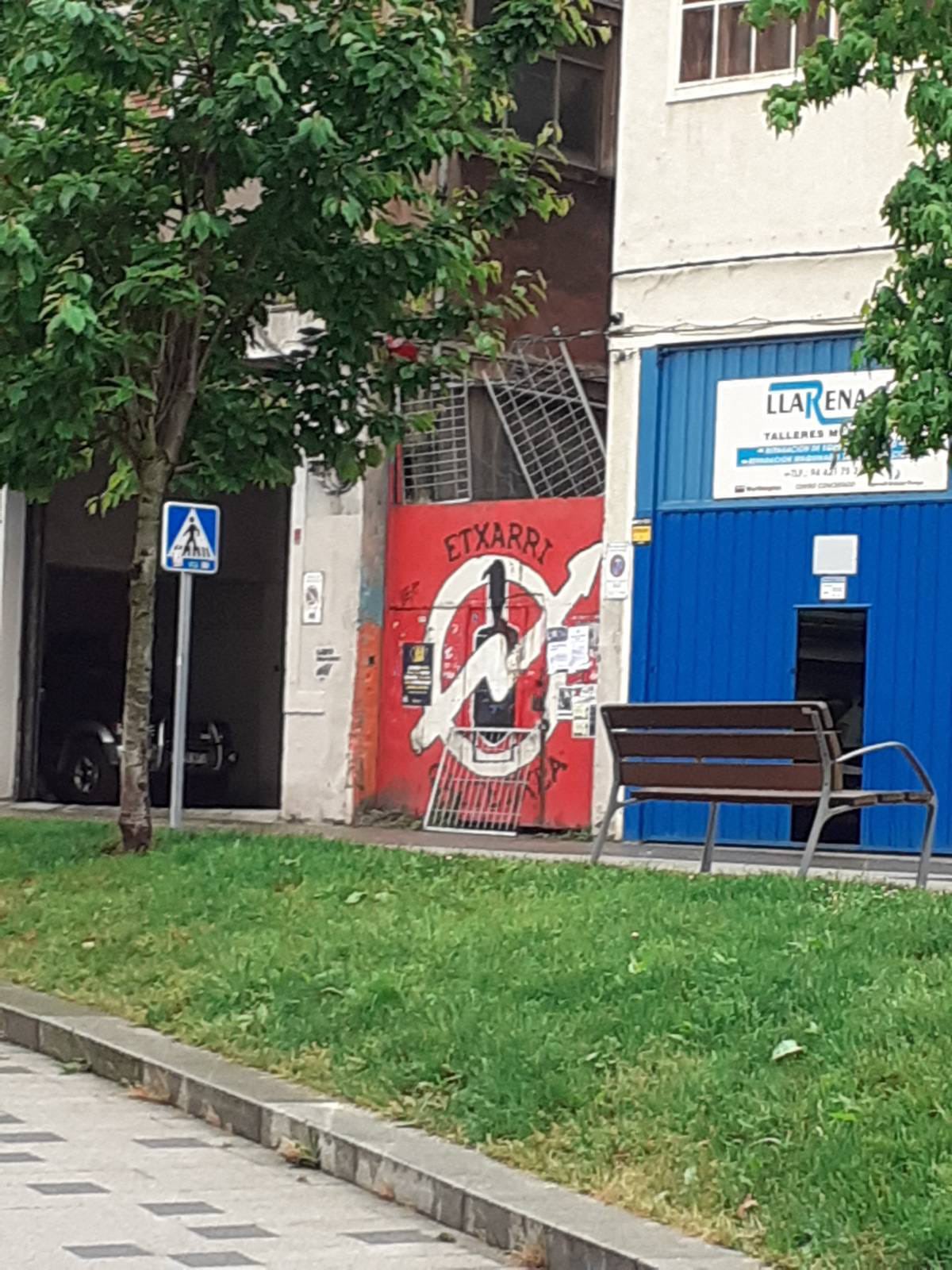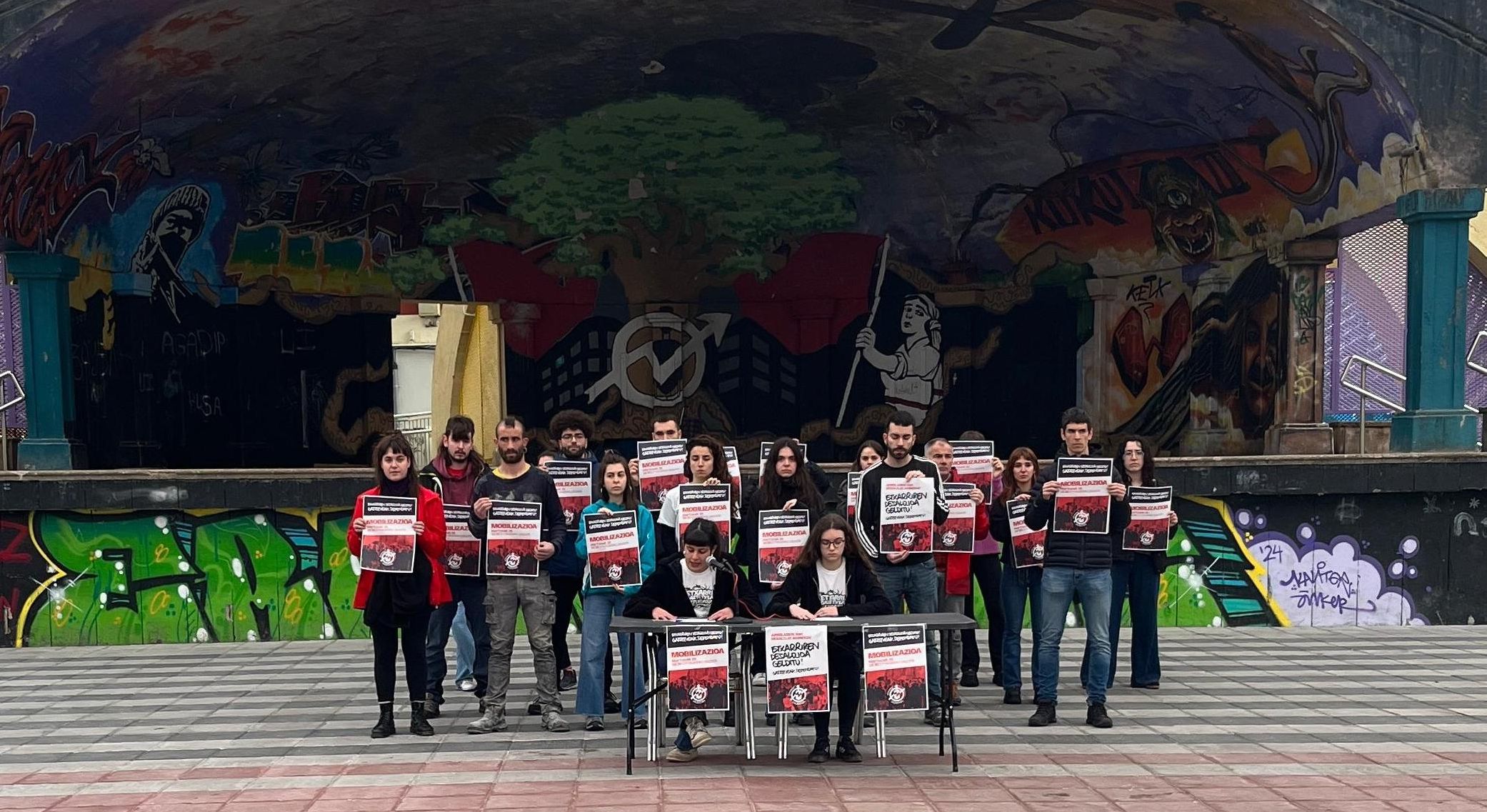Chronic: Bolsheviks and Mensheviks in Zumaia
- Martov and Lenin do not speak Basque. II Congress of the Social Democratic Party of Russia in 1903. The congress was not held in Zumaia. But on the one hand the ring [the Bolsheviks] the need of the communist party to unite the “vanguard of the workers’ movement,” and on the other hand, listening to the defense of the benefits of the “broad party of moderate reformists” has been us 100 years ago.

For one part of the round table, Eneko Compains, professor of the UPV/EHU and member of the National Council of the Sortu. On the other hand, Kolitza (wanted to hide his name). It is known for its strict reflections from the point of view of the class on websites and publications such as Borroka Garaia. The peculiarity of the quote? A round table organised by the youth movement Iparra de Zumaia is the first occasion on which the evident rupture between these two ideological sectors in a formal space is discussed.
The proletariat, classical universality, devaluation, productive resources, bourgeois institutions, political infantilism, the Maoists and Leninists, the strata, the surplus value, the formulation of the abstract, the crates, the sublimation of the nation… Concepts to right and left Izarrak boxing in the Marxist style, or if you prefer the Roast Battle proletarian. Setting With the same decoration as the speech of Artur Mas and Juan Jose Ibarretxe, three men talking about revolutions for the public address installed by the former councilman of the local PNV, a group of people coming from many parts of Euskal Herria – calvos and not one of the grids – who for two and a half hours applaud with curiosity and obeying photography. Someone can be anachronistic. Isn't that what my father's youth counts? But listen, there are people who don't go out of fashion, and Marxism is the new orange in some militant areas.

The third man on the stage, a member of Iparralde, had a lot of work to moderate. The round table was called Gaztetxeak, popular movement and institutions, but for the second question arose the reason why some 250 people have gathered: the visible breakdown of several young militants with the Abertzale Left. More and more voices are being heard from the Abertzale left. Whether they are old partners, or popular movements, or related to the time of the prisoners… but there is a sector that has become manifest in recent times: the one that is being organized in different youthful spaces, gaztetxes, occupied spaces and student movements. The acidity of the criticism from the class point of view to the Abertzale Left (sortu, especially ERNAI) has had a different level in practice when that clash has reached the streets, either in the surroundings of the Abertzales Pupils or in the gaztetxe Marvels of Pamplona.
It would take a long time to reach its conclusions, but here are a few points per point.
Change in Navarra
Compains stressed that the flourishing of recent years, transferred to Navarre, has not been a coincidence because it has joined the government of change. “It’s been a great help.” The member of Sortu gave all the centrality to political change, although to define it “is not enough, but…”, “it is not what we would like, but…”. “We have to strengthen and radicalize this change, but it is clear that in Navarre the main contradiction is whether the government of change or the kuneteros”.
In Kolitza’s opinion, the proliferation of “work-controlled” spaces such as the Gaztetxe and Errekaleor is something that has been going on for ten years, is not a cyclical matter. And it is that “young people are at the beginning of the birth of a new political line.”
Kolitza replied that in Navarra the main “contradiction” is the class struggle. That is the main antagonism, and not survival or the national issue of supposed change. “To think otherwise is to fall into immediacy.”
Kolitza even doubted who the Kuneteros were. “You [addressed to Compains] are also ruling with ditches. Then inside Bai is also the PNV. They did not stand in Navarre against the fascist uprising of 36. And, without going far, the PNV has been and is, through the Police, a platform of the Spanish State for the spread of street terrorism in Euskal Herria. You are governing with them.” He said that in Spain there is no liberal democracy, among other things because “there have never been constituent processes, and above all because it was born based on the denial of the right of self-determination”, and that from anti-democratic institutions “change is a chimera”.
Therefore, responding to the issue of gaztetxes, Kolitza pointed out that “interclavian processes will collide with areas controlled by workers”.
From the Gaztetxe Marvels we have also come to the debate 'Gaztetxeak, popular movement and institutions', which is about to start in Zumaia. Thanks to @Iparragmz for organizing this kind of enriching debates. pic.twitter.com/EYQBnpR0BU
— Marvels Gaztetxea (@GTX) November 16, 2018
The Relationship of Wonders and Gaztetxes with Power
Compains considered it beneficial to link agreements with the municipalities, but with the inexcusable condition that in those agreements the assemblies of young people or of gaztetxe did not make political concessions. “Our right is the use of public buildings, if not, for whom do we have to leave that possibility, for the young people of UPN? Accepting coexistence rules (e.g. with regard to hours, cleaning or noise) does not mean that the bourgeoisie assimilates you.”
Eneko Compains: "In relation to Marvels, I see no sense whatsoever for EH Bildu to seek the resignation of Uxue Barkos. On the contrary, it would be understandable to ask for María José Beaumont's."
Regarding the case of Pamplona, Compains pointed out that the City Hall has offered the young people who meet in Marvels "the best place in Pamplona, that no other popular movement would ever have rejected, and the members of Marvels said no. I respect his decision, but it was a good opportunity to get the problem back on track. Young people from other towns in Navarre have accepted [the change] offered by municipalities.”
The view of the collision was much more critical. In his opinion, EH Bildu's proposal in Pamplona does not guarantee "the continuity" of the Marvels project. “They proposed a contract for a year. But then? If EH Bildu does not reach the mayor’s office in the next election, what do they have to do?”
Compains insisted on the need to put aside “everything or nothing”. “I say this as a Marxist, we have to know what the contradictions of first and second order are, and in Navarre, change versus kuneteros is the first. That's what's above the others. Our mission is to strengthen and radicalize change.” Therefore, in this sense, in the thread of Marvels, EH Bildu sees no sense in the resignation of Uxue Barkos. However, he believes that it would be more understandable if the Interior Minister, María José Beaumont, had been asked to resign.
According to Kolitza, EH Bildu has changed his attitude towards gaztetxes because "internal contradictions have been managed". At first, it has shown its "hostile attitude to Gaztetxes". “Not everywhere, of course, but in relation to the Gaztetxes who have developed their own political identity. An example of this is Marvels, which when it was Sortu’s first occupation between his social base that opened a bad environment, they didn’t see it with good eyes.” He also set the case of Lekeitio as an example. “The young people of Lekeitio told them in the name of a participatory process to evict the occupied building. That was never done, and after leaving the youth without kids, the Left Abertzale pushed the persecution against them.”
“In the opinion of the Sortu, young people have to contribute to their line, and when they and they develop their own identity, when they consolidate their political condition, they become a problem for them and them.” In Kolitza's view, the obligation to make a proletarian party in bourgeois institutions is to take the power out of these institutions and transfer it to the points controlled by the workers, even if it is illegal. That is why, among other things, he has stated that “sortu is not a working party”.
Compains replied: “Those who have developed a political identity or an identity of their own have also been evicted if the Abertzale left has not been in power.”
The role of the Gaztetxeak: to create a communist party or to boost the sovereign process
In Compains’ opinion, the role of gaztetxes should be to foster a sovereign process. “The way the struggle against capitalist domination in Euskal Herria takes is the process of national liberation. Or what is the same, the central lock of the working class in Euskal Herria is the 78 regime in Spain”.
Coliz: "Adolescents are the ones who point to the need for a national organization of workers. The unity of the workers, the communist party."
Of course, the view that the Kolitza expressed was very different. In their opinion, young people point out "the need for a national workers' organization". “The unity of the workers, the party.” And along that road he mentioned the intermediate steps: the networks of solidarity or self-defense between the gaztetxes. For this reason, he considered that “a tactical and strategic involution” was that young people only responded to dynamics at the local level. “The workers’ power cannot be articulated at the local level, as the trade unionists concluded before Marxism, in the time of the French Revolution.”
Kolitza defined the Gaztetxeak as “spaces of socialist power.” And for the future, it took for granted that the articulation between them is going to occur. “On the road to the unity of the workers, to the proletarian party, which I believe should be the communist party on the road to creation.”
Venezuela to the right to decide
Turning to institutional relations, they referred to the lessons of the leftist Governments of South America. In the opinion of Compains, the bases of change in some Latin American countries are the right ones to bring Euskal Herria: “a vast accumulation of forces and the impetus of popular movements.” In his words, the constituent process carried out by some of the peoples, such as the one promoted by Chávez, is also an objective of the Abertzale Left. However, “so far we have not been able to accumulate sufficient forces”.
The Kolitza, in his accumulation of forces, accused Compains of contradiction. “In what in Euskal Herria calls change, a coup party participates in Venezuela: PNV”. In his view, the concept of change in Venezuela cannot be used here as it is being done. “The right to decide is a concept invented by the PNV. The Abertzale Left, which has been its historic claim, has set aside self-determination to reach it. Who is the change here? You have been drawn, not the other way around. Moreover, knowing that the right to decide is impossible in the Spanish State, as Catalonia has shown.”
Compains responded that if the right to decide outside the PNV, the PNV would enthusiastically defend it. “We are seeing that this is not the case, there is competition for that term, and it is up to us to fill it with content.”
In addition to the situation in Navarre, Kolitza underlined his will for permanent agreement with the PNV to show “the inter-class turn of the Abertzale Left”. EH Bildu “is a coalition controlled by the labour aristocracy and the small businessmen, who could be allies of the proletariat have slipped with the enemy, with the bourgeoisie”.
Distancing/rupture of militant youth with the Left Abertzale
Both rapporteurs stated that this breakdown is undeniable in some areas of youth. Compains shared a few reasons.
“At one time I had an honest and attractive offer of struggle. I joined the Abertzale Left because it was a force that confronted the State with dignity, rather than the speeches of Idigoras or whatever. Now the strategy has changed to bring the State to a land that it does not want to confront and that is uncomfortable for it.” But in that transition, the Sortu leader pointed out that the Left Abertzale was wrong in the following accounts:
- Trapped in the institutional whirlwind: “Bildu achieved the greatest institutional power of all time, and after that an institutionalist trend has emerged.”
- There is no attractive fighting offer, especially for the most committed sectors: “However, it has been possible to connect with those who have little commitment. For example, in recent years there have been the greatest mobilizations of Navarre, such as that of Alsasua".
- Organisational model: “Organizational changes have weakened some ties with popular movements.”
- No epic: “Your practice has to emote people, and the Abertzale Left has not had the ability to get excited; contrary to what has happened in Catalonia.”
Then, Compains underscored the nostalgia of the future rather than the nostalgia of the past. In his opinion, it is essential that society understands its offer and its political practice, “otherwise you are lost”. An example of this was the dynamics of self-defense against repression. “300 people met in Pamplona, then there were incidents, detainees… and in Iruñea nobody understood what all this was about. It’s a sign that you’ve lost the connection with the society you want to change.”
"The strategic objectives and organizational bases of the Abertzale Left have been destroyed by a majority," said Kolitza. But, "let's not forget, the Abertzale left's political proposal is illegal in the Spanish state, and that's why most parties decided to change that proposal to make it legal." Also the organizational model”.
However, it has not put the key to the breakdown in the change of the Abertzale Left, but in the “brutal proletarianization” that has generated the crisis. In this neoliberal whirlwind there has been the explosion of the Left Abertzale, and “when the clearest and crudest objective conditions for the struggle have appeared”, the Left Abertzale has lost the opportunity and decided to take another direction, according to Kolitza.
Contributions from the public
The first to speak from the public was a member of Marvels. After emphasizing that he spoke at a personal level, he assured that the break with the Left Abertzale that was spoken of coincided with the debate "abian". “It was then that they decided to adopt the model of organization of the classic Social Democratic parties, leaving aside the so-called “fourth leg” to ensure connection with popular movements [referred to the role of the Ekin organization]. That is why the Abertzale Left understood that the presence had been lost in the street.
In relation to the eviction of Marvels, he denounced that Sortu distributed the reading among his militants “eye!, they say that they are a political subject, and we cannot accept that”. This, above all, is the consequence of putting “Change.”
Compains then explained that the “fourth leg” had been removed: “This decision was made to change the relationship with popular movements, so as not to break it. The previous model, many times, and therefore, I know something [was condemned by the Spanish National Audience for belonging to Ekin], removed autonomy from the popular movement”.
The second took the floor and replied: "Class struggle takes a form of national struggle." “Extending independence as a compulsory condition makes no sense to solve the problem of the working class of the Basque Country,” he said.
The last two interventions were not questions. It was a reading like the manifesto of a party that was not represented in its discourse, two voices, long and wide. Here is the “revolutionary proposal” that made many receive the brow: “When we claim socialism, why should we reduce it to Basque Country? In order to deal with imperialism, it is more effective to settle in the large areas, which is why the union of the peoples of Spain is better. We want socialism in Spain.”
Kolitza, by the way, was not a Leninist, said that Euskal Herria is the center of the communist party that he foresees.
To end his theoretical struggle, Compains used a few words from Rosa Luxembourg to leave the door interlaced: “May my words serve to mitigate our disputes.” Kolitza took advantage of his last participation to thank his interlocutor, Compains: “It must be borne in mind that he has come to this hostile space to defend his position.”
Date Post: No, there was no talk of "Marxism-feminism."
Aste Santuan Berriozarren egindako topaketetatik egun gutxira bildu gara Gasteizko Sorturen bulegoan. Hango kontuez jardun dugu apur bat, baina batez ere gaur egun euskal gizartean dantzan diren gaiez aritu gara, Ernaik horien gainean duen iritzian sakontzeko asmotan. Amaiur... [+]
Pasa den asteko "kaleratze ilegala" salatu dute hainbat herritarrek, ostiral arratsaldean.
Manifestazio jendetsu batek herriko kaleak zeharkatu ditu, Poliziaren gehiegizko dispositibo batek zainduta, gazteek kudeatutako guneen defentsan eta Gaztetxeak erasoen aurrean defendatzeko. Manifestazioaren amaieran, publiko egin dute iragarpena.
Amenabar enpresak Bilboko Udalaren eskutik apirilaren 4rako agindu duten desalojoaren kontra azaldu dira bilkuran. Poliziak indarrez kanporatu ditu. Ostiral honetan18.30ean, Errekaldeko Plazatik hasiko den manifestaziora batzeko deia luzatu dute gazteek, baita desalojoaren... [+]
Bilboko Udalak eta Amenabar enpresak proiektu urbanistiko baten pean itxi nahi dute 10 urtez auzoko bizitza sozialaren erdigunea izan den topalekua. Horren aurrean, hiriko 55 kolektibok baino gehiagok manifestu bat sinatu dute prozesua gelditzeko exijitzeko.









